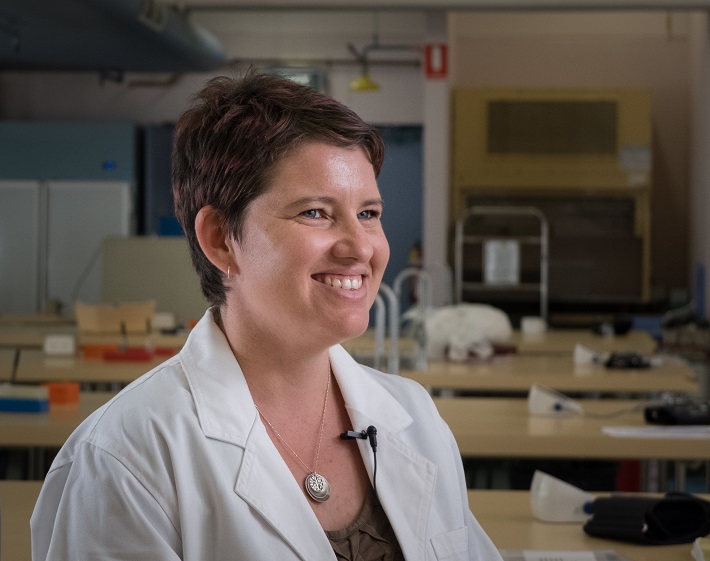Many days in the laboratory are long and repetitive. Processing blood and saliva samples, extracting DNA, and measuring hormone levels. But to maintain her motivation molecular biologist and geneticist Mary McMillan need only think about the many thousands of people she might one day help.
"At least one in every seven people in Australia will suffer from depression during their lifetime so there is a very real prospect that our discoveries will improve many lives," Mary says of the work of the UNE's Brain Behaviour Research Group.
"We know a lot about depressive behaviour but not a lot about the biological changes that go along with it. Our group's research might eventually identify the different types of depression and predict who is susceptible, so that we can intervene earlier and improve treatment."
As a member of the multi-disciplinary team, which also includes a clinical psychologist, neuroscientist, immunologist and medical practitioner, Mary is studying a range of biological and genetic markers in order to build a picture of what depression looks like at the cellular level. "By adding this biological data to the other information we have about a person, we will hopefully learn how to personalise their diagnosis and treatment," she says.
The ground-breaking research is the latest sharp turn in a roller-coaster career that has spirited Mary from student to lecturer and from the cells of microbes to those of mammals. "I always liked science at school but I had no idea of the range of scientific careers that were out there, apart from becoming a vet," she says. "I can still remember my very first biology class at UNE, when we started talking about DNA, and thinking this is what I want to do."
Mary's honours project probed the genetics of fungi and her PhD examined assisted reproduction's contribution to improved beef quality. Then she swiftly turned to how crop management affects soil microbial activity, before moving on to her current focus - depression. "My research has essentially looked at what is happening in cells at the DNA level," she says. "If you have the tools to understand and analyse that, then you can apply that knowledge to any field or system you can think of. DNA doesn't change, whether it is in bacteria, cows or people."
For Mary, the building blocks of life are endlessly fascinating. "The idea that we are born with this material, that our DNA contains all the instructions for our development; that everything we need for life is encoded in these molecules," she says. "DNA is quite simple and basic in its structure yet we can manipulate that material and cause all sorts of things to happen."
Sharing the wonder of biology with primary students through the CSIRO's Scientists and Mathematicians in Schools program gives Mary a little light relief from the serious work of teaching and research. But she relishes the close relationships she has with her UNE students and colleagues.
"The teaching staff at UNE are very accessible; the students are not a nameless, faceless mass," she says. "I know who my students are, and it can be sad when my third years graduate, but they often keep in touch. And I love that I know all my colleagues, some of whom were my lecturers when I was studying here."
Advice to undergrads:
"When you first come to uni, try to get some real experience. Carry out extra-curricular work to support your study. Then you don't just have a piece of paper, but a set of skills. Talk to people in the industry about their careers and job prospects, do work experience. High school students interested in a science career should attend open days and HSC booster days. They are a great way to taste science and hopefully find the one thing that you will fall in love with."


